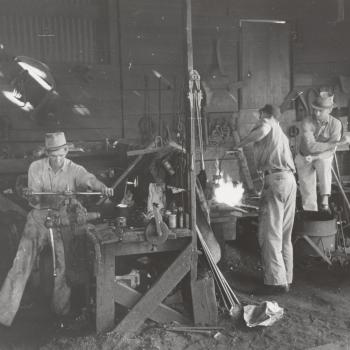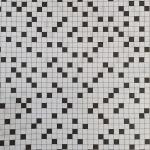The Working Catholic: Anxiety by Bill Droel
Since the dawn of the urban/industrial revolution social scientists, religious leaders and ordinary families have struggled with its side effects. The unintended outcome of industrialism was called the social question. The term, first used in Western Europe in the early 1800s, considers: How is it that the promise of economic progress is accompanied by so many paupers and what should be done about poverty? Today there is a second, related question: Why in our upwardly mobile economy is there so much anxiety?
This past spring journalist Renee Roden visited the University of Notre Dame to assess the longer-term effect of Covid-19 and the general temperament of the students. Her report in Notre Dame Magazine (Summer/23) is disturbing.
There is a mental health crisis on campus (and not just at Notre Dame). The social question has become the anxiety question. The first side effect, poverty in the land of plenty, is now a second side effect, excess stress in a place of privilege. Notre Dame has an “increased demand for counselors and therapy,” Roden writes. There were 60 mental health hospitalizations among students in the previous academic year.
One cause for the anxiety might be social media. There are, Roden observes, “a lot more screens” on campus. Contrary to advertisements, laptops and mobile devices do not connect people. As Jacques Ellul (1912-1994) put it, “Technology individuates.” The proliferation of screens does not aid but rather threatens genuine freedom.
Emile Durkheim (1858-1917) founded the discipline of sociology out of concern for the withering of viable institutions within modern industrial society. Instead of an organic society in which the cooperative parts created a whole community greater than their sum, Durkheim saw individual fragmentation. He introduced the term anomie to describe the breakdown of common values that lead to aloneness and instability. Deviance and self-destructive behavior are of particular concern to Durkheim.
Sociology, as it developed, was premised on the idea that one person and again one other person and then another was not the problem. The problem is defects or side effects embedded within modern industrial society. Max Weber (1864-1920), another pioneer of the discipline, noted the loss of enchantment within the rise of our capitalist economy. He famously associated Protestant Christianity with society’s strong individualistic strain that over time destroys community.
David Riesman (1909-2002), with co-author sociologists Nathan Glazer (1923-2019) and Reuel Denney (1913-1995), argued in The Lonely Crowd that modern individualism is not outward-looking self-confidence, but rather a constant looking over one’s shoulder to see what others are doing. The modern individual is subject to the latest shallow fad, leading to loneliness even in a crowded workplace or a crowded suburban town.
Philip Rieff (1923-2006) continued the analysis in The Triumph of the Therapeutic. Family structure and community structures are frayed, he wrote. A whole, flourishing, holy life requires participation in public life. Yet modern individuals are retreating to their own obsessions. Robert Putnam provides statistics to support that analysis in his 2000 book, Bowling Alone, and in subsequent books. People don’t participate in face-to-face social groups—lodges, neighborhood organizations, churches, and bowling leagues. The decline began in the 1950s and is quite evident since 1970.
Roden astutely makes the same sociological point in her report from Notre Dame. Anxiety and mental health are usually put in “an individualistic framework,” she writes. But “human beings are ecological creatures. The environment we live in affect[s] everything.”
Notre Dame and other schools properly attend to students’ well-being with counselors, sensitive resident assistants, kindly teachers, congenial clubs and more. But a bigger analysis and a different type of remedy are necessary in our age of anxiety. To be continued…
Droel edits INITIATIVES (PO Box 291102, Chicago, IL 60629), a printed newsletter on faith and work.










